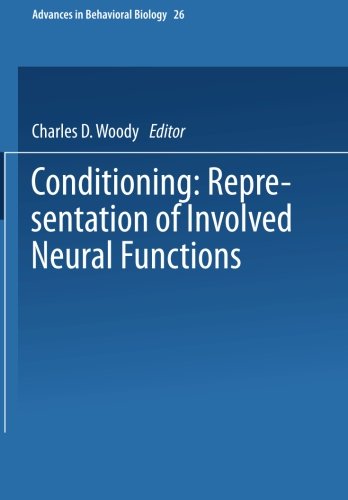I would like to thank all those who contributed to the success of this symposium and its proceedings by providing the material herein. The purpose of the symposium was to examine current know ledge of the brain’s function in supporting conditioned behavior. The research of those assembled has led to much of this knowledge. It is a pleasure to acknowledge the organizational help of Drs. D. Alkon, D. Cohen, J. Disterhoft, T. Thach, R. Thompson, and L. Voronin, and also the UCLA Brain Research Institute, the UCLA Mental Re tardation Research Center, and Dolores Squires, who assisted faith fully in the administrative organization of the symposium. Special thanks are also due the publisher and publishing editor, James Busis, for lending us their expertise in the preparation of camera-ready material and its rapid publication. C. D. Woody CONTENTS THE ROLE OF THE HIPPOCAMPUS IN THE ACQUISITION OF LEARNED BEHAVIOR Role of the Hippocampus in Reversal Learning of the Rabbit Nictitating Membrane Response 1 Theodore W. Berger and William B. Orr Long Term Modulation of Intrinsic Membrane Prop- ties of Hippocampal Neurons”. . . • . . . . . . . . . . . 13 L. S. Benardo and D. A. Prince Visual and Auditory Cues Support Place Field Ac- vity of Hippocampal Units in the Rat . . . . . . . 37 Phillip J. Best and Alvin J. Hill Hippocampal Plasticity and Excitatory Neurotrans mitters . . . . . . . . . . . 49 Carl W. Cotman, Graham E. Fagg, and Thomas H.
List price: $109.00

